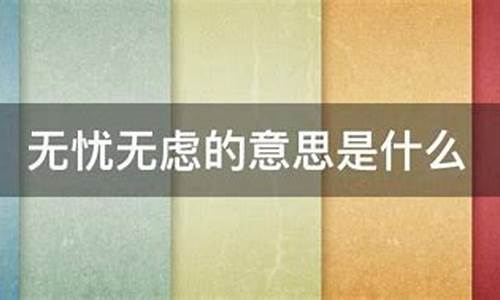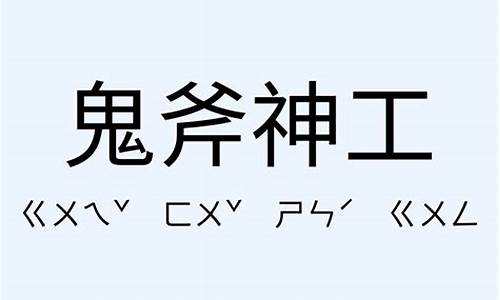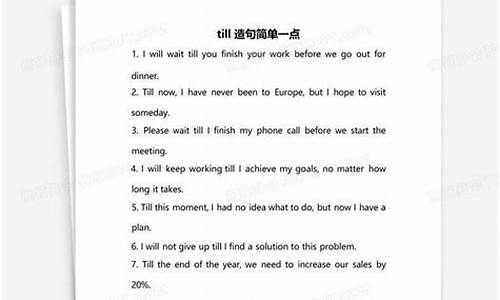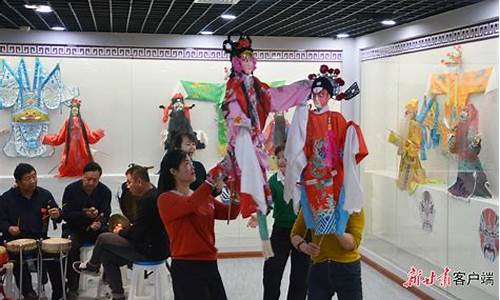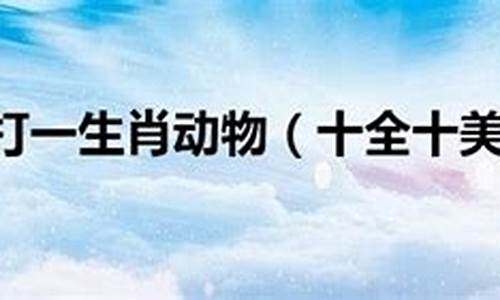您现在的位置是: 首页 > 成语谚语 成语谚语
猜灯谜英语怎么说_猜灯谜英语怎么说?
tamoadmin 2024-09-29 人已围观
简介1.灯谜英语怎么说?2.元宵节习俗英语3.各种中国传统节日的英文介绍中秋节传统活动英语:Traditional Activities of the Mid-Autumn Festival。双语例句:1. 赏月 - Appreciating the Full Moon:Families and friends gather under the bright full moon, appreciati
1.灯谜英语怎么说?
2.元宵节习俗英语
3.各种中国传统节日的英文介绍

中秋节传统活动英语:Traditional Activities of the Mid-Autumn Festival。
双语例句:
1. 赏月 - Appreciating the Full Moon:Families and friends gather under the bright full moon, appreciating its beauty and completeness. 人们聚集在明亮的圆月下,欣赏它的美丽和完整。
2. 吃月饼 - Sharing Mooncakes:Sharing and enjoying mooncakes with loved ones symbolizes unity and harmony. 与亲朋好友分享和品尝月饼,象征着团圆和和谐。
3. 悬挂彩灯 - Hanging Lanterns:Colorful lanterns in various shapes and sizes illuminate the night, creating a festive atmosphere. 各种形状和大小的彩灯照亮夜晚,营造出节日的氛围。
4. 猜灯谜 - Guessing Lantern Riddles:People engage in the tradition of guessing lantern riddles, promoting intellectual stimulation and fun. 人们参与猜灯谜的传统活动,促进智力刺激和娱乐。
5. 舞狮龙 - Dragon and Lion Dances:Dragon and lion dances bring streets to life, symbolizing good luck and warding off evil spirits. 舞龙舞狮将街道点亮,象征着好运和驱邪避鬼。
6. 制作柚子灯 - Making Pomelo Lanterns:Pomelos are carved into intricate designs, transforming into beautiful lanterns, signifying good fortune. 柚子被雕刻成复杂的图案,变成美丽的灯笼,象征着好运。
7. 赠送“福”字 - Giving and Receiving Hap:"Hap" (福) – meaning "good fortune" – adorns lanterns and decorations, spreading blessings and joy. “福”字(好运)装点在灯笼和装饰品上,传递祝福和快乐。
中秋节的这些传统活动不仅丰富了亚洲社会的文化底蕴,也弘扬了家庭、团结和感恩的价值观。通过这些活动,人们聚集在一起,欣赏月亮之美,加深彼此间的关系,并将他们丰富的文化传统传承给下一代。这个传统节日以其独特的仪式和活动,弘扬着团聚、传统和欢庆的精神,成为亚洲文化中的一颗璀璨明珠。
灯谜英语怎么说?
admire the moon outdoorslight fireworksguess lantern riddles happilyhave sweet dumplings altogetherfamilies get together celebrate the festival togetherWe all enjoy ourselves.
元宵节习俗英语
灯谜是中国传统文化的一部分,灯谜并不是都题写在灯上,绝大多数情况下是在灯笼环绕的环境里用纸条、彩带、小旗子作为作为载体悬挂供人们阅读猜测结果,如果觉得自己猜中了就可以撕下拿去兑奖,如果答错,由管理人员再次悬挂。里面不仅包括字谜、可以说包罗万象,是对人抽象和逻辑思维的一次综合考验。如果用riddles来表示是欠妥的。我建议执意要用英文,可以用拼音,否则用lanterns riddles,象征代表一下就行了。因为国外没有,就像春卷一样,拼音我觉得足够了。
各种中国传统节日的英文介绍
元宵节习俗英语Customs of Yuanxiao(Filled round balls made of glutinous rice-flour for Lantern Festival)。
元宵节风俗:闹花灯、踩高跷、吃元宵、舞狮顷败氏子、猜灯谜、游龙灯、迎紫姑、放烟花、扭秧歌、打太平鼓等。
1、闹花灯:闹花灯是元宵节传统节日习俗,始于西汉,兴盛于隋唐。隋唐以后,历代灯火之风盛行,并沿袭传于后世。而正月十五,又是一年一度的闹花灯放烟火的高潮。
2、踩高跷:踩高跷技艺性强,形式活泼多样,由于演员踩跷比一般人高,便于远近观赏,而且流动方便无异于活动舞台,因此深受群众喜爱。
3、吃元宵:正月十五吃元宵,“元宵”作为食品,在中国也由来已久。宋代,民间即流行一种元宵节吃的新奇食品。这种食品,最早叫“浮元子”后称“元宵”,生意人还美其名曰“元宝” 。北方“滚”元宵,南方“包”汤圆,这是两种做法和口感都不同的食品。
4、舞狮子:舞龙舞狮,是中国民间传统习俗。舞龙又称耍龙灯、 龙灯舞。龙是古老的图腾,传说龙能行云布雨、消灾降福枯族,象征祥瑞,所以以舞龙的方式来祈求平安和丰收就成为全国各地的一种习俗。
5、猜雀散灯谜:猜灯谜又称打灯谜,是中国独有的富有民族风格的一种传统民俗文娱活动形式,是从古代就开始流传的元宵节特色活动。
1、春节(农历一月一日) Spring Festival;Chinese New Year's Day
由来:
Primitive beliefs and sacrificial culture are important factors in the formation of New Year's Day.?
原始信仰和祭祀文化是春节形成的重要因素。
习俗:
such as Lunar New Year's dinner, keeping the age, New Year's money, temple fairs, flower lanterns and other customs.
如团年饭、守岁、压岁钱、庙会、赏花灯等习俗。
2、元宵节(农历一月十五日) Lantern Festival(龙灯节直译)
由来:
The custom of burning lamps on the fifteenth day of the first lunar month is related to the spread of Buddhism to the east.
正月十五燃灯的习俗与佛教东传有关。
习俗:
Lantern Festival mainly includes a series of traditional folk activities,
such as watching lanterns, eating dumplings, guessing lantern riddles and setting off fireworks.
元宵节主要有赏花灯、吃汤圆、猜灯谜、放烟花等一系列传统民俗活动。
3、清明节(公历4月5日前后,农历二月后半月至三月上半月间) Tomb-Sweeping Day
由来:
The Qingming Festival originated from the Spring Festival and the Spring and Autumn Festival in ancient times.
清明节源于上古时代的春祭,春秋二祭,古已有之。
习俗:
Tomb-sweeping, ancestor-sacrificing and outing are common basic etiquette and custom themes.
扫墓祭祖、踏青郊游是共同基本礼俗主题。
4、端午节(农历五月初五) Dragon Boat Festival(龙舟节直译)
由来:
Dragon Boat Festival, with a long history, evolved from the dragon totem worship held in Baiyue in ancient times.
端午节,历史悠久,由上古时代百越举行龙图腾祭祀演变而来。
习俗:
The Dragon Boat picking and rice dumplings are the two main themes of the Dragon Boat Festival.
扒龙舟与食粽子是端午节的两大礼俗主题。
5、中秋节(农历八月十五) Mid-Autumn (Moon)Festival
由来:
The Mid-Autumn Festival originated from the worship of celestial phenomena,
and evolved from the worship of the moon on the autumn evening in ancient times.
中秋节源自天象崇拜,由上古时代秋夕祭月演变而来。
习俗:
offering sacrifices to the moon, enjoying the moon, eating moon cakes,?
playing with lanterns, appreciating osmanthus flowers and drinking osmanthus wine.
中秋节自古便有祭月、赏月、吃月饼、玩花灯、赏桂花、饮桂花酒等民俗
6、重阳节(农历九月九日) Double-ninth Day(重九节直译)
由来:
The origin of Chongyang Festival can be traced back to ancient times. In ancient times,?
there were activities of harvest sacrifice and Mars sacrifice in autumn and autumn.
重阳节的源头,可追溯到上古时代。古时季秋有丰收祭天、祭祀大火星活动。
习俗:
There are customs such as climbing high to pray for blessings, visiting chrysanthemums in autumn, wearing dogwood,?
offering sacrifices to gods and ancestors, and feasting for longevity.
有登高祈福、秋游赏菊、佩插茱萸、祭神祭祖及饮宴求寿等习俗。
百度百科——中国传统节日
上一篇:强调的近义词_满的近义词20个
